Bowdoin welcomes five new professors this fall
Tenure and tenure-track professors bring interdisciplinary perspectives to their departments
November 1, 2019
This fall, five tenured or tenure track professors joined Bowdoin’s ranks, settling into the community and bringing new ideas to their departments. They specialize in a wide array of subjects, including religion, Asian and Africana studies, music, neuroscience, biology and chemistry. The professors combine research and teaching, embracing the liberal arts tradition of interdisciplinary exploration.
Claire Robison
Assistant Professor of Religion and Asian Studies
Claire Robison does both historical and ethnographic work, focusing on religions of India and South Asia.
“My work looks at how the practice of religion is changing in contemporary India, particularly with the rise of globalization, urbanization [and] the ways that people are rethinking what religion means to them in the modern context,” Robison said.
The opportunity to engage in this kind of work through an interdisciplinary position was appealing to Robison.
“I draw from anthropology with my use of ethnographic methods, [and] I’m also interested in thinking about the relationship of religion, culture and politics broadly,” Robison explained. “I’m … adding something new [to the departments] in the sense that a lot of the work done in the department is predominantly historical and textual. My work is focused on looking at lived religion.”
Robison concentrated on this subject during her time at the University of California, Santa Barbara, where she earned her PhD after earning her Bachelor’s degree at Oxford University and her Master’s degree at Cambridge University.
Robison is teaching two courses cross-listed in the Asian Studies and Religion departments: “Hindu Literatures” and “Religion on the Move: Religion, Migration, and Globalization.”
In addition to teaching, Robison is working on research projects that explore lived religion in India.
“I’m in the process of editing my manuscript based on my doctoral work, but I’m also laying the groundwork for my second project which will look at … the ways in which religious identity is changing in urban India today,” Robison said.
Ayodeji Ogunnaike
Assistant Professor of Africana Studies
Ayodeji Ogunnaike came to Bowdoin after earning his PhD in African and African American studies from Harvard University last year. Ogunnaike studied religion in Nigeria, as well as the diaspora.
Focusing on the intersection between religion and Africana studies, Ogunnaike teaches two cross-listed courses: “Introduction to African Religions and Cultures” and “Deities in Motion: Afro-Diasporic Religions.”
“Religion isn’t something that was covered directly [in the Africana studies department],” Ogunnaike said.
His focus on African nations, rather than mostly on African-American topics, is also unique for the Africana studies program.
Born in Nigeria, Ogunnaike is able to bring his own life experiences into the classroom.
“In my classes I … tell people stories about my life and the things that happened to me, and I can always use myself as an example,” Ogunnaike said.
In addition to his teaching, Ogunnaike is busy with several research projects, including a book of Nigerian myths for children.
“I always loved mythology as a kid, but I didn’t know much of the mythology from my own ethnic group in Nigeria,” Ogunnaike said. “Several years ago I went back to Nigeria and collected a whole bunch of myths and stories and things that I’ve put together into a kids book [that] I’m working on publishing.”
Ireri E. Chávez-Bárcenas
Assistant Professor of Music
Ireri E. Chávez-Bárcenas comes to Bowdoin after teaching at Yale University and Rider University.
Specializing in music from the 17th century, Chávez-Bárcenas focuses on Italian opera and sacred music in the Hispanic world.
Her work is interdisciplinary, combining music with Latin American studies and theater. One of her classes this semester, entitled “Experiencing Latin American Music,” is cross-listed in the music and Latin American Studies departments.
“The idea is to introduce students to the main elements [and] principles of music but also to Latin American culture,” Chávez-Bárcenas said. “The idea is … looking at the music as an opportunity to get to know more about groups of people or countries or regions.”
Her second class, “From Claudio Monteverdi to Lin-Manuel Miranda: Issues at the Intersection of Music and Theater” is cross-listed in the music and theater departments. She nearly became a professional musician, studying piano and percussion, but knew her interests lay in research.
“I wanted to study sociology or history or philosophy … until I discovered that there was this thing called musicology … where I could combine the humanities and music,” Chávez-Bárcenas said.
Once she discovered musicology, Chávez-Bárcenas never looked back.
“The moment when I really knew that I wanted to do this [was] the first time I went to the archive in a cathedral in Mexico,” Chávez-Bárcenas said. “You just see all these papers and all these documents and all these histories … that’s my passion to work with the original sources and to be able to discover all these histories behind [them].”
She continues to carry that passion to her current research projects, which include an essay on song and dance transitions in the Mexica region and a book she hopes to develop in the next four or five years.
Manuel Díaz-Ríos
Professor of Neuroscience and Biology
After teaching and studying at the University of Puerto Rico (UPR) medical school and completing a post-doc fellowship at Cornell, Manuel Díaz-Ríos comes to Bowdoin as a professor of neuroscience and biology.
Díaz-Ríos says that he was enamored by the Bowdoin student body following his 2016 visit to campus to deliver a talk.
“They were so focused. They were so dedicated. They were so inquisitive and so hungry for knowledge,” Díaz-Ríos said.
Specializing in neuroscience and neurophysiology, Díaz-Ríos taught at UPR Medical School for 14 years. Díaz-Ríos said that he appreciates the undergraduate setting and the emphasis placed on personal relationships.
“[Medical students] just want to get what’s essential for them, attend classes and get good grades,” Díaz-Ríos said. “Undergrads [are] in a stage in their careers [and] are much hungrier for knowledge and for exploring and for finding their direction professionally.”
Díaz-Ríos teaches “Motor Systems Neurobiology” this semester, exploring major animal motor systems to study how behavior is controlled.
“We’re starting to transition to diseases, to see how animal models can help us understand disease progression,” he said.
Díaz-Ríos hopes to get involved in local schools and bring neuroscience education to elementary and secondary school students.
“I have already contacted the high schools here, and hopefully we’ll start to give interactive presentations and demonstrations,” Díaz-Ríos said.
As for his time outside of the lab and classroom, Díaz-Ríos said that he hopes to take up skiing.
“It’s something I couldn’t do as a postdoc; I was just working all the time. Now, I might take up cross-country skiing,” Díaz-Ríos said. “I’m looking forward to making the most of my winters here.”
Allison Dzubak
Assistant Professor of Chemistry
Hailing from Minnesota, Assistant Professor of Chemistry Allison Dzubak came to Bowdoin after three years of research at the Oak Ridge National Lab in Tennessee.
“[Bowdoin is] such a warm environment,” Dzubak said. “I met the other faculty on Skype, and that was really promising, but it wasn’t until I got here that I saw how everyone interacted with each other … and it was just the way I wanted it.”
In her introductory class “General Chemistry,” Dzubak aims to strike a balance between breadth and depth, meaning she may spend more time on one concept so that her students can fully grasp it, instead of blazing through a wide array of content.
Having previously taught graduate students, the teaching style and students’ enthusiastic involvement in classes at Bowdoin was a pleasant change.
“[Teaching graduate students] was tough because I couldn’t have as many one-on-one interactions with students,” Dzubak said. “Here, the class sizes are much smaller, [and] I can interact with students [individually and] employ different types of teaching techniques.”
A self-described “outdoorsy person,” Dzubak looks forward to exploring Maine’s natural beauty.
“I’ve been hiking a lot so far and I’m looking forward to doing that more,” she said. “I might try winter skiing, too.”

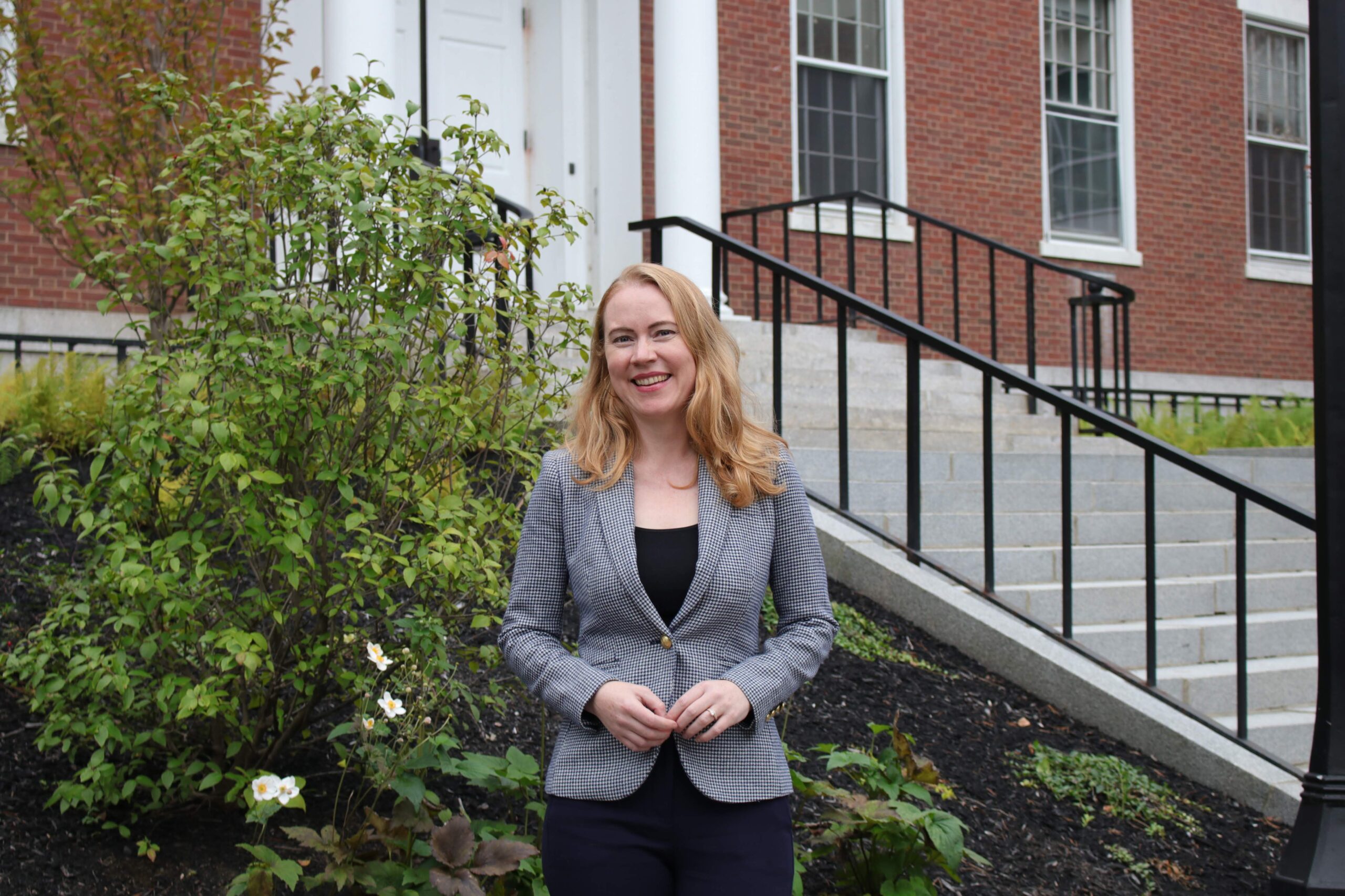
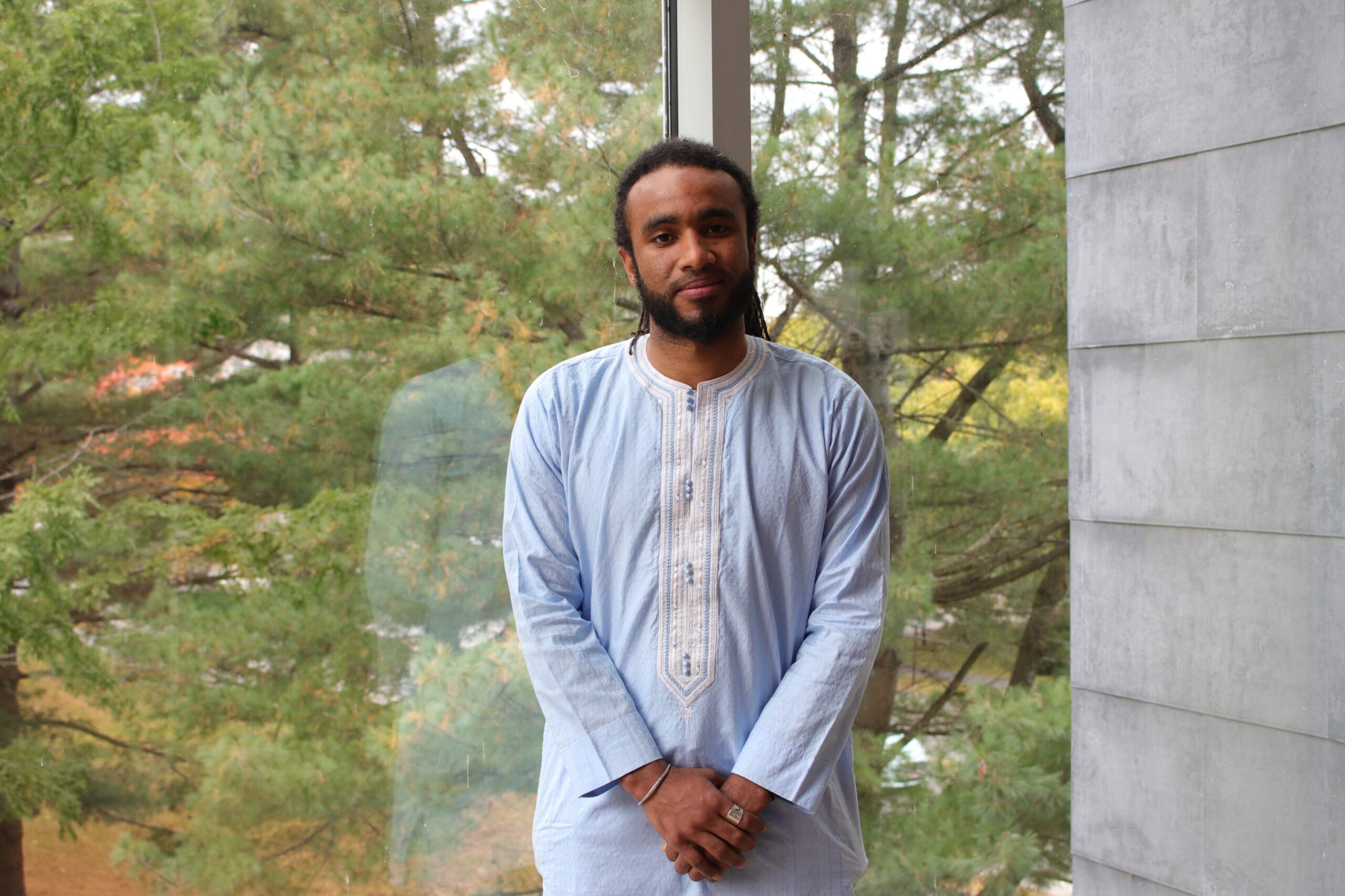
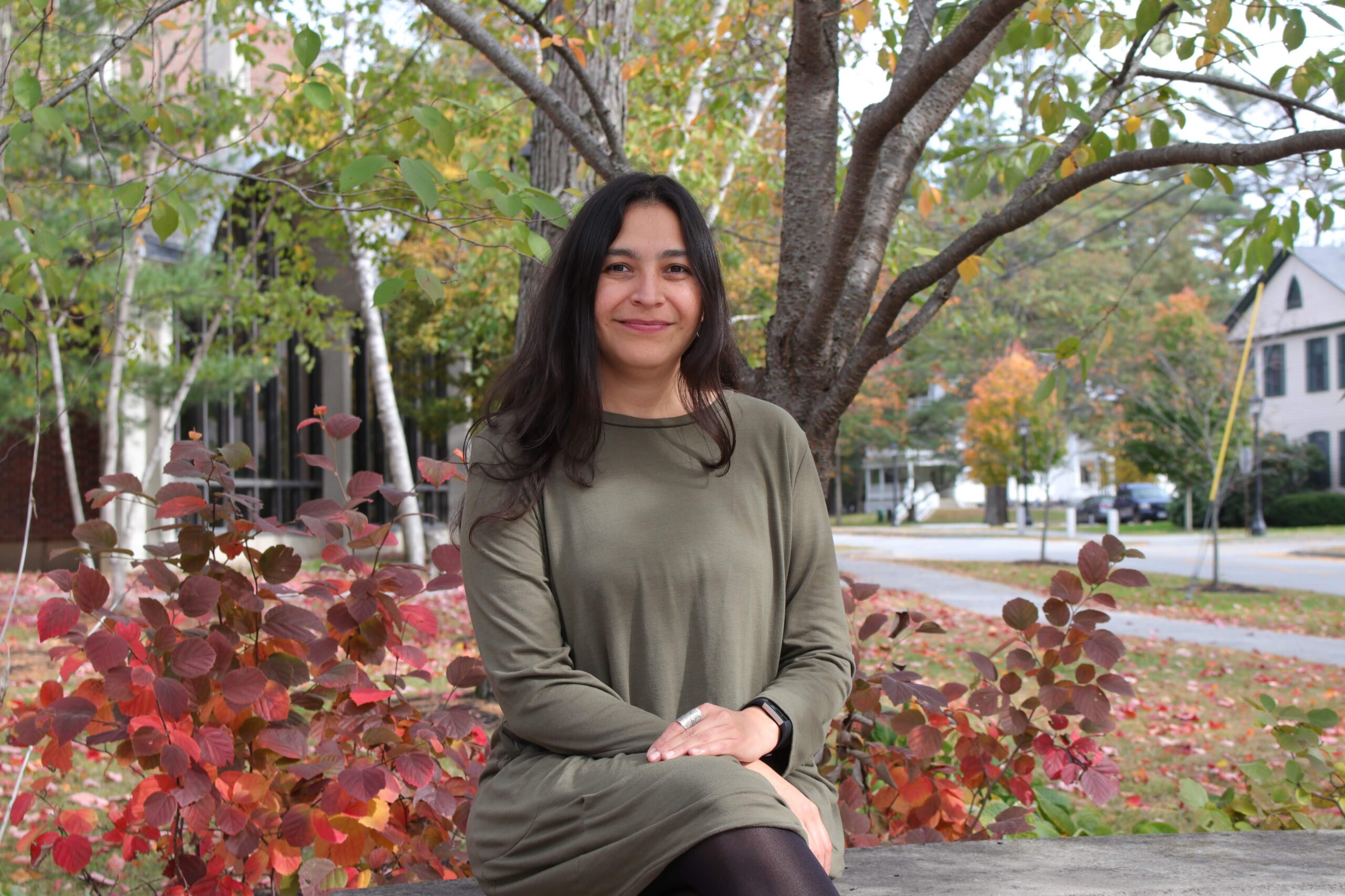
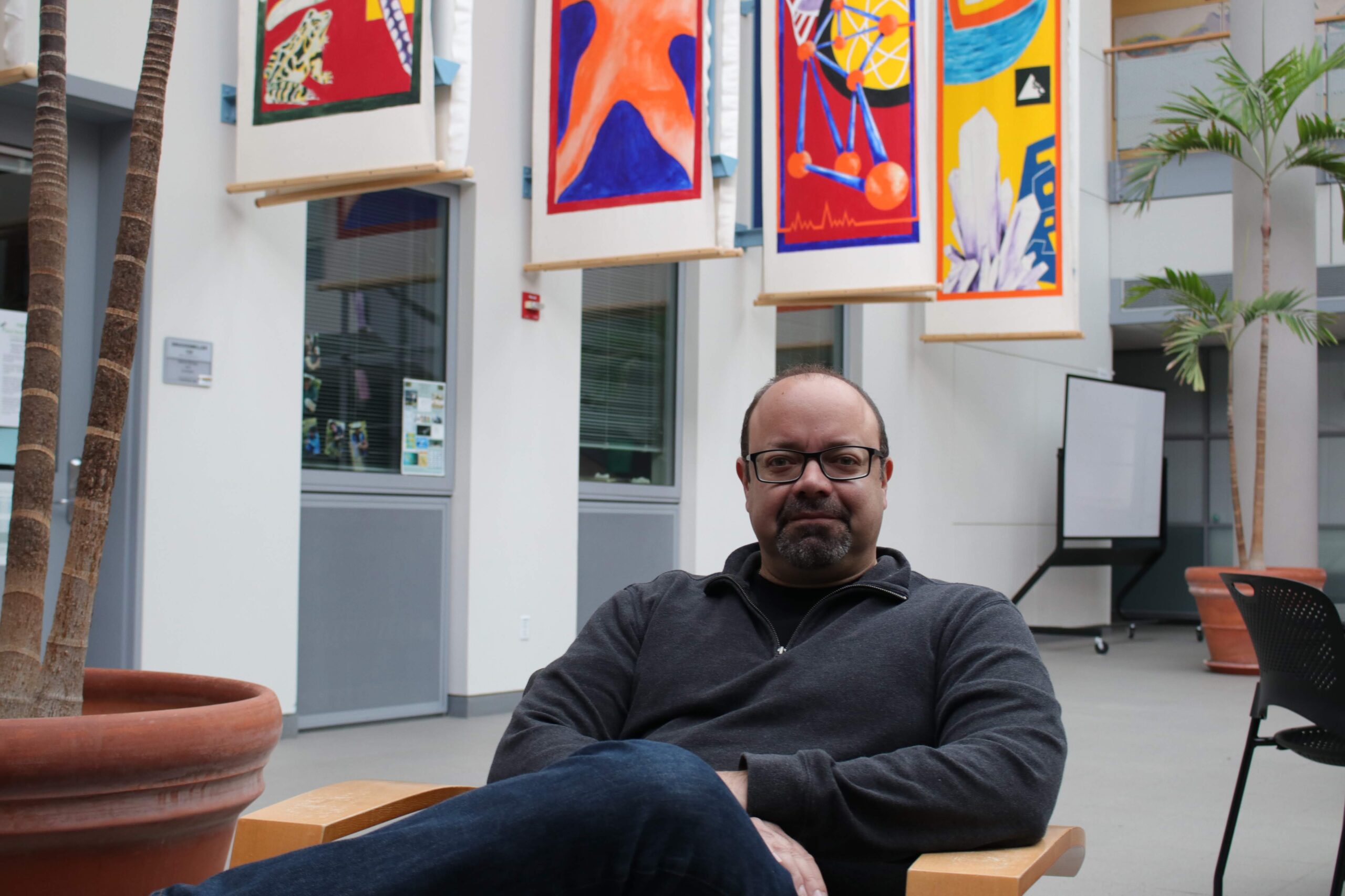
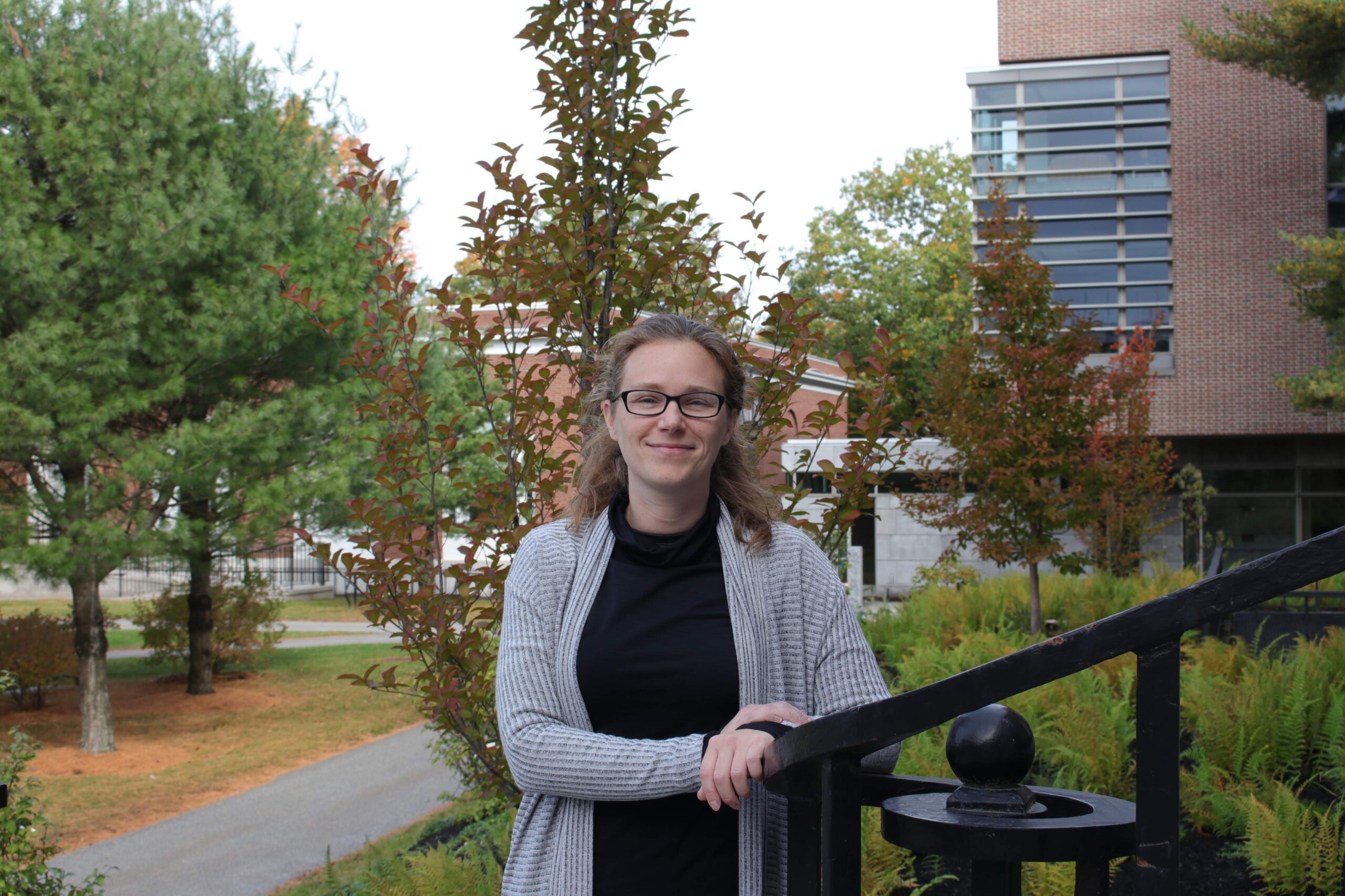
Comments
Before submitting a comment, please review our comment policy. Some key points from the policy: